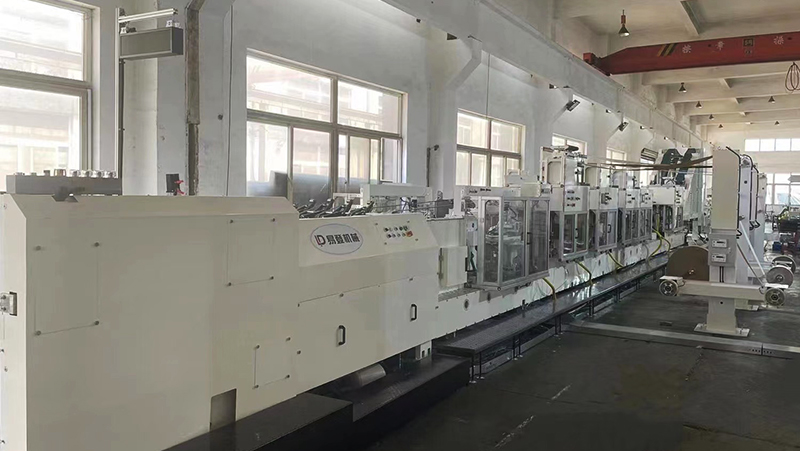Roll-Fed Paper Bag Making Machines: Efficiency, Sustainability, and Key Features Explained
Release time:2025-05-09 Classification:Knowledge
In today’s environmentally conscious market, the demand for eco-friendly packaging solutions has surged, driving innovation in manufacturing technologies. Among these advancements, roll-fed paper bag making machines have emerged as critical equipment for producing high-quality, customizable paper bags efficiently. This article explores the functionality, benefits, and applications of these machines, highlighting their role in modern packaging industries.

What Is a Roll-Fed Paper Bag Making Machine?
A roll-fed paper bag making machine is an automated system designed to convert rolled paper substrates into finished paper bags. The process involves unwinding paper rolls, printing (if required), cutting, folding, gluing, and forming bags with precision. These machines are engineered to handle diverse bag styles, including grocery bags, merchandise pouches, and food-grade packaging, while maintaining consistent output quality.
Key Features and Technical Capabilities
- High-Speed Production
Modern roll-fed paper bag machines operate at speeds exceeding 100 bags per minute, ensuring rapid turnaround for large-scale orders. Advanced servo motors and PLC controls optimize synchronization between components, minimizing downtime. - Versatile Material Compatibility
These machines support various paper types, including kraft paper, recycled paper, and laminated materials. Adjustable tension systems ensure smooth handling of different substrate weights and thicknesses. - Customizable Designs
From handle attachments (twisted, flat, or ribbon) to printing options (flexographic or offset), the machines enable brands to create tailored packaging that aligns with their aesthetic and functional requirements. - Eco-Friendly Operation
By utilizing biodegradable materials and reducing waste through precise cutting mechanisms, roll-fed systems align with sustainability goals. Energy-efficient components further lower the carbon footprint of production. - Integrated Quality Control
Sensors detect defects like misalignment or glue inconsistencies in real time, ensuring only flawless bags proceed to the finishing stage.
Benefits for Manufacturers and Brands
- Cost Efficiency: Automated workflows reduce labor costs and material waste.
- Scalability: Suitable for both small-batch customization and high-volume production.
- Compliance: Meets global standards for food safety and recyclability.
- Brand Enhancement: Enables premium finishes, such as glossy coatings or embossing, to elevate product presentation.
Applications Across Industries
Roll-fed paper bag making machines serve diverse sectors:
- Retail: Durable shopping bags with branded prints.
- Food Service: Grease-resistant bags for takeout or bakery items.
- E-Commerce: Lightweight, protective mailer bags.
- Healthcare: Sterile packaging for medical supplies.
Roll-fed paper bag making machines represent a fusion of innovation and sustainability, addressing the growing need for efficient, eco-conscious packaging solutions. By investing in this technology, manufacturers gain a competitive edge through faster production cycles, reduced operational costs, and the ability to meet evolving consumer preferences. As industries continue to prioritize environmental responsibility, these machines will remain indispensable tools for creating functional, visually appealing paper bags that resonate with modern markets.






